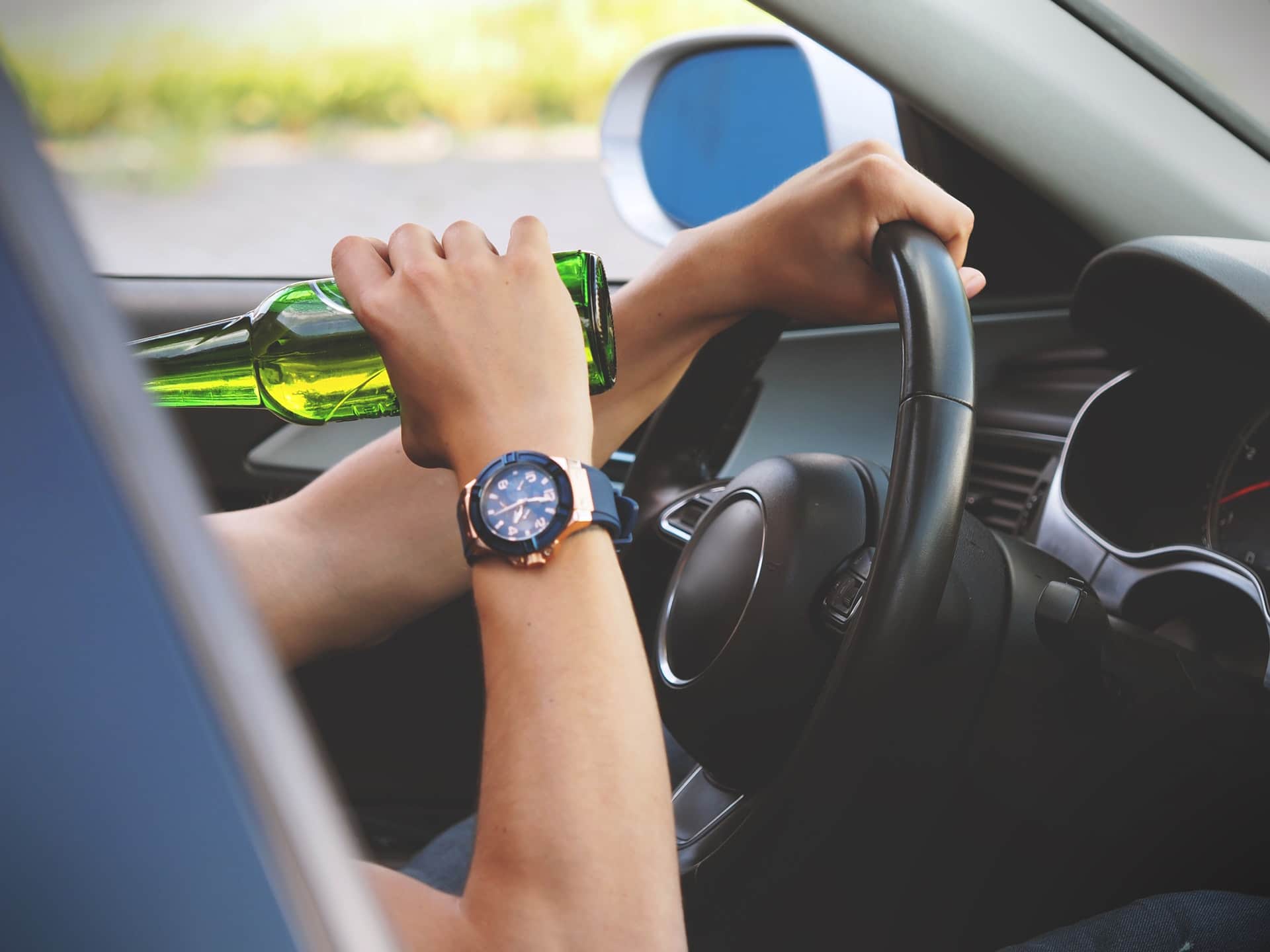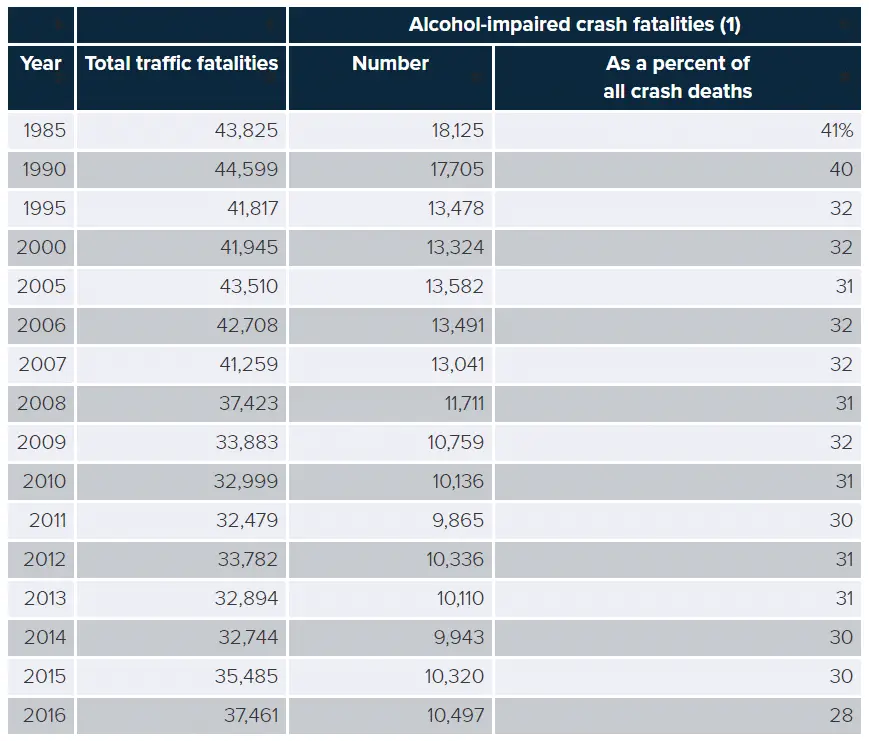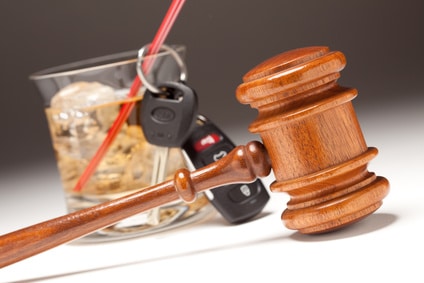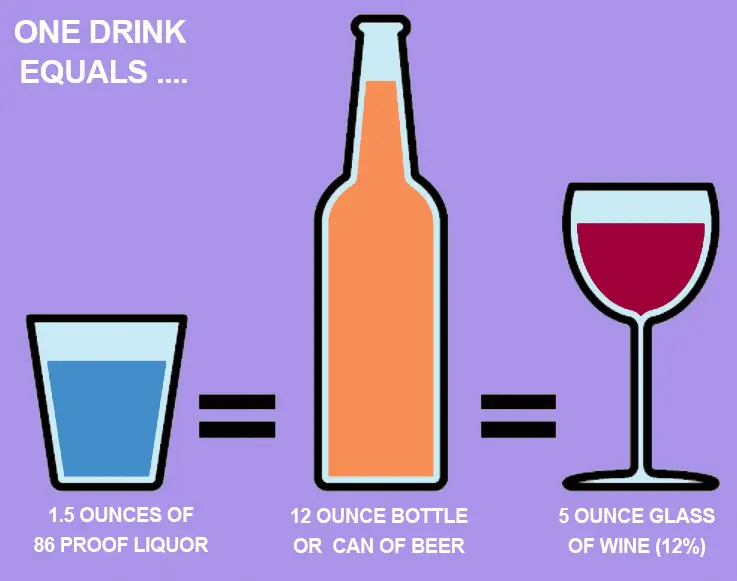Everything You Need To Know About DUI and Drunk Driving
Table of Contents
Drunken Driving Accidents
People just don’t seem to learn. Drunken driving is still a serious issue on American roadways. Many people who have been arrested for drunken driving in the past are repeat offenders. As per the most recent numbers from the National Highway Traffic Safety Administration, 10,497 people died in drunken driving motor vehicle accidents in 2016. Nearly 300,000 other people were injured. Those weren’t just alcohol-related accidents. Those were accidents involving people with blood alcohol levels at .08 or above. To put it simply, that’s legally drunk in any state in the country. Those fatalities accounted for 28 percent of all traffic fatalities for the year, and they translated into one drunk driving death every 50 minutes.
Impaired Judgment
Drunk drivers cause more serious injuries and deaths as a result of the speeds that they often drive at. They’re far more likely to speed, weave from lane to lane, drive in the wrong lane or fail to stop when required because of impaired judgment. If a person couples speed with that type of driving behavior, there’s a drastically increased risk of severe or fatal injuries for anybody on or about the roadway.
No Sympathy for Drunk Drivers
Sure, drunk drivers are prosecuted in the criminal courts, but those courts can’t be accessed by victims who want to seek compensation for their injuries and damages. That’s a job for the civil courts and experienced DUI accident lawyers, especially when a victim is seriously injured or a family member perishes. Juries in the civil courts aren’t sympathetic to drunken drivers either. Neither are the bankruptcy courts. Along with compensatory damages in drunken driving accident cases, victims are also allowed to seek punitive damages. It’s common for them to be awarded in these types of cases.
The Burden of Proof
Even if a criminal DUI charge is dismissed on a legal technicality, you can still pursue compensation for your damages in a civil drunken driving personal injury case. That’s because there are two different burdens of proof in the two types of cases. In the criminal case, the prosecution must prove the alleged drunk driver guilty beyond a reasonable doubt. In a civil drunken driving accident case, the burden of proof is a preponderance of the evidence. That means that your version of events is more likely true than not true. It’s a much easier burden to overcome. A drunken driving accident victim can even bring their civil lawsuit at the same time as the drunken driver is being prosecuted. In fact, that’s encouraged. The case will be heard in a different courtroom with a different judge.
Liability of Third Parties
A person or business who gifted or sold alcohol to a person who later caused a DUI crash might also be held liable for damages. Most states have laws whereby bars, clubs, hotels or even social hosts can be held liable for damages by supplying alcohol to a person who later injures or kills somebody in a DUI crash.
A drunken driving accident case might settle if the opposing insurer recognizes that its insured person was at fault. Beware of any insurance adjuster who contacts you. His or her job is to minimize the insurance company’s loss. Don’t give that adjuster any type of a written or recorded statement or a medical authorization either. The law doesn’t require you to give those, and that adjuster will only try to use your own words and medical history against you in the future. If the person who caused your accident and injuries was arrested for DUI, protect and invoke your rights by contacting a drunken driving accident lawyer right away.
Drunk Driving Statistics
| Alcohol-Impaired Driving Fatality Data 2016 | |||
|---|---|---|---|
| Alabama | 279 | Montana | 85 |
| Alaska | 30 | Nebraska | 62 |
| Arizona | 232 | Nevada | 101 |
| Arkansas | 117 | New Hampshire | 40 |
| California | 1059 | New Jersey | 137 |
| Colorado | 161 | New Mexico | 118 |
| Connecticut | 100 | New York | 283 |
| Delaware | 37 | North Carolina | 354 |
| DC | 11 | North Dakota | 50 |
| Florida | 841 | Ohio | 324 |
| Georgia | 368 | Oklahoma | 180 |
| Hawaii | 34 | Oregon | 154 |
| Idaho | 77 | Pennsylvania | 327 |
| Illinois | 315 | Rhode Island | 19 |
| Indiana | 211 | South Carolina | 331 |
| Iowa | 106 | South Dakota | 46 |
| Kansas | 94 | Tennessee | 223 |
| Kentucky | 175 | Texas | 1438 |
| Louisiana | 225 | Utah | 52 |
| Maine | 54 | Vermont | 27 |
| Maryland | 130 | Virginia | 220 |
| Massachusetts | 119 | Washington | 161 |
| Michigan | 236 | West Virginia | 68 |
| Minnesota | 93 | Wisconsin | 193 |
| Mississippi | 128 | Wyoming | 32 |
| Missouri | 244 | ||
| US Total 10,497 | |||
| Source: NHTSA, FARS, 10/17 | |||

DWI often refers to someone who tested above the legal limit of .08%
Foundation for Advancing Alcohol Responsibility
The National Highway Traffic Safety Administration (NHTSA) reported that over 1.5 million individuals are arrested annually for DUI and DWI offenses.
NHTSA
DUI vs DWI – What Is the Difference Between DUI and DWI?
Depending on the state that you reside in, driving under the influence (DUI) and driving while intoxicated (DWI) can have vastly different meanings. Both terms indicate that an operator of a motor vehicle has been deemed too impaired to continue driving, but how that conclusion was reached is what can differ from case to case. In most instances, a state will use one acronym to specifically describe drunken driving, and the other to describe being under the impairment of drugs.
A common pattern in states distinguishing the difference between DUI vs DWI lies in the blood alcohol content (BAC) of the driver at the time of questioning. DWI often refers to someone who tested above the legal limit of .08%, while DUI indicates that they were under the influence enough to be impaired without reaching an illegal BAC. Even if your breathalyzer proves that you are under .08%, a law enforcement officer may still determine that your judgement is too impaired to continue operating a motor vehicle.
Other states may differentiate DUI vs DWI by establishing one acronym to indicate the influence of drugs, while the other is reserved to indicate drunken driving. Many states will use DWI to specifically refer to being under the influence of alcohol, while a DUI points to someone being impaired by drugs. It is critical to note that impairment brought on by prescription drugs is also qualified as driving under the influence, and can be tried as such. If the law enforcement officer at the scene cannot determine the level of impairment, they often call a drug recognition expert (DRE) onto the scene in order to follow their 12-step protocol for identifying impairment levels.
The National Highway Traffic Safety Administration (NHTSA) reported that over 1.5 million individuals are arrested annually for DUI and DWI offenses. These staggering statistics show how important it is to be well-versed in your state’s laws surrounding impaired driving. Becoming knowledgeable about the DUI and DWI definitions in your state will allow you to avoid potential prosecution while providing much safer roadways.
DUI stands for Driving Under the Influence, while DWI stands for Driving While Intoxicated
DUI Meaning
The act or crime of driving a vehicle while affected by alcohol or drugs.
DUI definition
Is a DUI a Felony Offense?
Driving while intoxicated and driving under the influence are both considered serious offenses. In some jurisdictions, they may be synonyms for the same offense, or they might be two different charges with one more serious than the other. As to whether DUI/DWI is a felony offense, it depends on the circumstances.
The most basic level DUI/DWI offense is usually a misdemeanor. A misdemeanor is a criminal offense, but the maximum sentence is one year in jail. The judge will often impose a fine or probation sentence instead of jail time. There are several circumstances when the charges may increase to felony charges.
A repeat driving while intoxicated offense can lead to a felony charge. This charge often has the same elements as the basic misdemeanor charge plus a previous driving under the influence conviction. Therefore, if you already had a misdemeanor charge for drunk driving, committing the exact same offense for a second or third time could result in a felony charge.
Another common felony charge is for causing an accident with injuries. While simply being pulled over might result in a misdemeanor, getting involved in an accident may result in a felony. In some jurisdictions, there is a special DUI or DWI charge for this circumstance. Other places may charge misdemeanor DUI or DWI but add on other charges such as reckless endangerment if someone was hurt or manslaughter if someone died. Those additional charges are felonies.
A high blood-alcohol content could also result in felony charges. If you are just over the legal limit, it would typically be a misdemeanor if it was your first offense and no one was hurt. If you’re two or three times the legal limit, this may put you above the threshold for a felony even on a first offense with no injuries.
Because there are so many different types of DUI or DWI charges, it’s important to talk to a lawyer. Even if you believe you were drunk driving, each charge requires the prosecution to prove a specific and slightly different set of facts beyond a reasonable doubt. In some cases, you may even be able to plead down to a less serious charge. For example, even if you committed a felony offense, you might be able to negotiate down to a misdemeanor to avoid becoming a felon. To learn more, talk to a DUI/DWI lawyer now.
What are DUI checkpoints or Sobriety checkpoints?
If you’ve been charged with DUI after being stopped at a checkpoint, your first question was probably whether DUI checkpoints are legal. The answer is that sobriety checkpoints are in legal, but you still have rights. If your rights were violated, you may be able to have your charges dropped.
Many people have argued that DUI checkpoints are an unconstitutional violation of the Fourth Amendment right to be free from unreasonable searches and seizures. This is because when police stop drivers at checkpoints, they don’t need any cause at all to make the stop. The courts have ruled that driving on a public road isn’t an absolute right and that the police can set up checkpoints as long as they meet strict conditions.
At the checkpoint itself, police can’t single out drivers or use any sort of discretion in deciding who to stop. They must stop either every car or follow a predetermined pattern such as every third car. Once they do stop a car, they can only ask for basic information. They must have probable cause to conduct further sobriety tests or to search the car.
Drivers must also be able to avoid checkpoints. This is because drivers who go through a checkpoint are considered to have consented to it. The police may need to give advanced notice in the media or post warning signs up the road. Contrary to popular belief, a driver avoiding a checkpoint does not give the police cause to stop that driver. The police would need another traffic violation such as an illegal u-turn or failing to signal.
If you are arrested for driving while under the influence at a checkpoint, all of your normal rights and defenses still apply. For example, you can challenge whether a sobriety test was done properly or whether the police searching your car and finding an open container of alcohol was a legal search.
To learn more about your rights or possible defenses, contact a DUI lawyer as soon as possible.
Drunk Driving Accidents – Every day, almost 29 people in the United States die in alcohol-impaired vehicle crashes—that’s one person every 50 minutes in 2016.
NHTSA
4 Reasons Ignition Interlock Devices are a Win-Win for DUIs
Although the legal consequences for a DUI vary in each state, most will involve a suspension of license, fines and educational training. In addition, some states have adapted the installation of a breath analyzer, known as an ignition interlock device (IID) that connects inside the car. This device measures the driver’s alcohol level before starting the engine. If the reading is within the legal limit, it allows the DUI offender to continue driving while keeping the streets safe.
The IID Takes Drunk Drivers off the Road
The intent of the IID law is to prevent a previous offender from driving again under the influence of alcohol. It has the ability to keep drunk drivers off the road and, at the same time, allow a first time offender to make amends within the law.
An alcohol detection device, once used primarily by law enforcement to test and arrest drunk drivers, now allows for the prevention of repeat offenses. The court order will determine how long the device must stay in the car.
The IID Alleviates Hardship
Mandatory driver’s license suspension can create hardships for people who need to drive to work, transport kids to school, or other various activities. This necessity sometimes results in drivers charged with a DUI to drive illegally and without insurance. In addition, the consequence of a suspended license is hard to enforce against drivers desperate to carry on daily responsibilities.
However, should the courts order installation of an IID at the outset, it could alleviate hardship situations and create legal drivers eligible for continued insurance coverage.
The IID Eliminates Plea Deals
Offenders may find themselves involved in a plea agreement through a DUI attorney. Although this may eliminate the suspended license, it usually involves a hefty fine. Organizations, such as Mothers Against Drunk Drivers (MADD) have opposed plea deals, as it does not keep a potential repeat offender off the roads. MADD advocates the mandatory installation of the electronic device for first-time offenders.
The IID Cost Offsets Fines
Mandatory installation of the IID may alleviate the enormous fines imposed on lawbreakers. However, there is still a punitive cost placed on the driver for the installation of the device and the monthly fee. Typically, the one-time installation fee is approximately $100 and a recurring fee around $50 per month.
The installation of an IID has the ability to take drunk drivers off the road. At that same time, it can ease the financial hardship of hefty fines and license suspension for first-time offenders. Currently, the device is not capable of detecting illegal drug use but is a first step in eliminating alcohol-related DUIs.
Drunk Driving Facts


- Auto insurance increase over 13 years $40,000
- DUI classes $650
- Towing and storage fee $685 (at least 5 days)
- Fines and attorney fees $4,000
- DMV reinstatement fee $100
- Estimated Minimum total $45,435
*Estimate only, actual cost will vary.
Hidden Costs of a DUI
The decision to drive drunk can be a very costly decision. Even if you do not hurt yourself or anyone else, the financial costs of a DUI can be staggering. Here are some costs people often forget to consider.
Increased insurance
Once you get your license back, you will likely find that you have much higher car insurance rates. They can be double, triple, and even quadruple what you are used to paying, that is, if you can find car insurance. Even with perfect driving after the DUI, you can expect your insurance rates to stay high for at least three to five years. Think that you are safe because you managed to avoid a conviction? Think again. Some companies will drop your insurance immediately upon DUI arrest.
Legal costs
In addition to the ticket cost, expect to pay a premium for bail and lawyers. Many individuals arrested for a DUI have no prior experience with the legal system and don’t realize all the associated costs of an arrest. Bail is typically ten percent of your bond amount, which could mean a required four-figure payout to get out of jail while awaiting trial. Lawyers are also pricey and can cost five figures to defend a DUI case, particularly if you decide to take the case to trial.
Towing fees
You didn’t think you could drive your car home did you? If you get a DUI, your car will likely be towed when the police take you to jail. Want the car back? Expect to pay at least $100, if not more. Towing companies add fees every day the car is held at the towing yard. Typically companies also require a cash payment to retrieve the vehicle. Wait too long to get the car? The towing company will likely auction it off after about a month, keeping the sale proceeds to pay off the cost of the tow and storage.
Employment costs
Any time you have to be away from work is money out of your pocket. Some companies will fire you for a DUI conviction. In addition, a DUI could put your professional license at risk. commercial drivers, nurses, lawyers, doctors, and teachers risk their license with a DUI conviction. Even if you do keep your job, any future employer will be able to see the DUI charge with a simple background check, a standard hiring practice.
Financial costs are often a small price to pay for a DUI. DUIs can also cost you the respect of loved ones, can ruin marriages and can impact custody cases. Choosing to drink and drive can cost you money, your job, and respect. It can also cost you your life. Before you drink and drive, consider the costs. The cab home is probably cheaper.
In most states, a DUI or DWI stays on your driving record for 5 to 10 years. Insurance companies will usually drop your rates back to non-DUI levels after a few years, but your criminal record stays on the police database forever.
HOW LONG DOES A DUI STAY ON YOUR RECORD?
DUI will raise your car insurance rates for three years.
DUI INSURANCE
How a DUI Affects Car Insurance Premiums
Your driving record has a profound affect on your car insurance premiums. An event such as driving under the influence is a red flag for insurance companies. These companies also think twice before insuring someone convicted of driving while intoxicated. A person with a record of careless driving will have higher car insurance premiums. Insurance companies will accept the risk, but you’ll pay dearly for it.
High-Risk Driver Equals High Premiums
Your auto insurance premiums depend on several things. One of those things that carries a lot of weight is your driving record. The insurance company has to decide if you’re at high-risk for an accident. If you are a high-risk driver, then your insurance premiums will reflect that finding. The insurance company considers you a risk, which means you could eventually cost them a huge sum of money. The result is your auto insurance premiums will cost much more than if you had a clean driving record.
Insurance companies are especially hesitant to cover anyone who has a DUI conviction. Driving under the influence of drugs or alcohol is highly-likely to lead to an accident. Your reaction time slows down and your ability to think clearly is hindered. It also becomes more difficult to gauge your speed or concentrate on the road. In fact, driving under the influence means you’re 11 times more likely to cause an accident than a sober driver. Insurance companies know this, and take it into consideration when reviewing your driving record.
A DUI is equally detrimental even if you already have auto insurance. Your premiums could increase by a hundred dollars or more. And if you’re a repeat offender, your insurance company could choose to revoke your coverage. You will have the option of looking elsewhere but will still face high premiums.
Safe Driving is the Best Option
Driving while impaired is always a bad idea. You could cause an accident that kills you or someone else. An estimated 29 people per-day are killed in the US because of drunk driving. That’s one death every 50 minutes simply because someone decided to drive while impaired. Sober driving is the best way to keep the roads safe and your premiums low.
Why You Should Get a DUI Lawyer
Getting a violation for Driving Under the Influence, also referred to as a DUI, is something that no one ever wants to go through. A DUI, with all the fees, classes, and court proceedings, can eventually cost you up to thousands of dollars. A good lawyer can cost anywhere from $2000 and up for a DUI case. However, despite the added expense, a well selected lawyer can help you to navigate all the ins and outs of your DUI case.
Lawyers Know The Legal Landscape
Going into a court room for the first time, especially for a DUI case, can be a very scary experience. You may not know quite what to say in your defense, or how to respond to the Judge. Additionally, most DUI cases have more than one court date. How are you to know what you need to do at and bring to each court date? That is where a lawyer who is versed in DUI law can be very helpful. Since your DUI lawyer has experience working these types of cases they can help you to get through all the proceedings for your court case as smoothly as possible.
Do you know whether or not you should seek out a plea bargain? Do you know how to seek out a plea bargain in the first place? Should you plead guilty or not guilty? If you are uncertain at all about any of these questions then you will most certainly want to seek out a lawyer who specializes in DUI cases.
Lawyers Can Help With The DMV Process
In most states there are two tracks for a DUI case. There is the criminal track which is handled by the state’s court system, and there is the case which is handled by the DMV. Keeping track of both can be a messy situation. The right lawyer can help you keep up to date or where you need to be on what dates as well as what you need to do on those dates. A lawyer can also help you navigate the confusing process of losing your license, getting a temporary license, and then getting your license reinstated. This is a process with steps that must be followed very precisely. On your own you may miss one of these important steps, and missing even one could mean losing your license even longer. Getting a lawyer can help to make sure that you don’t go through any unneeded stress during this process.
If you are on your second DUI
If you are on your second DUI then you may be facing charges that are far steeper than those for a first time DUI. If you are getting your second DUI then you will most definitely want to seek out a lawyer to represent you in the case.
Getting a DUI can be a scary experience. But just remember that you do not have to go it alone. There are many qualified lawyers out there who can take on your case and help you to overcome all the struggles that come with a DUI.
AVERAGE COST
AVERAGE DURATION
Questions to Ask a DUI Attorney Before Hiring
The consequences of a DUI conviction can be far reaching both personally and professionally. Whether you’re innocent or guilty, if you’ve been charged then you need someone on your side in the courtroom to maximize the chances of being cleared, or to mitigate the damage if you’re found guilty. How can you decide on a good DUI attorney to represent you to best effect? Here are the questions to ask to help you in your choice.
Are You an Experienced DUI Specialist?
A good DUI lawyer will have plenty of experience in the field, rather than being simply an all-around good lawyer. DUI law is a complex field, and so knowing how many successful cases the attorney has handled is a vital first step towards deciding on their suitability. It can also help to ask if they’re members of bodies such as the National College of DUI Defense. Of course, this is no guarantee of your being acquitted, but your chances of a positive outcome are far higher with an experienced DUI attorney rather than one from a general law practice.
What’s Your Current Case Load?
However, there’s a need to strike a balance between the lawyer being experienced and successful, and having so many cases that yours isn’t given the full attention it deserves. Asking how long they expect to take to answer your queries can help to reveal how busy or otherwise they are.
Who Will Handle the Case?
Especially in larger law firms, it’s fairly common for a senior lawyer to handle the initial interview to establish the facts, and then hand over the actual casework and courtroom duties to a more junior member of the practice. Will you be happy with this, or do you want a consistent ally from start to finish?
Are You Certified in Field Sobriety Tests?
These are the basis of many cases, and so it’s vital your attorney is fully versed in the details of how they’re conducted and interpreted. Ideally, they should be trained and certified in carrying out these tests themselves so that they can argue from a position of knowledge and strength.
Have You Worked in the Particular Court?
Even within a single jurisdiction, DUI cases can be tried under a variety of judges. If you know which court your case is to be tried in, it will be helpful for your lawyer to have experience of working under that specific judge, so as to know their individual methods, stances, and policies.
What’s the Fee Structure?
Will you be charged a flat fee, or will all work be itemized? Will there be any extra charges for additional motions or witness interviews? Is the initial consultation free of charge? Is there a payment plan, and if so what are the terms? Make sure you agree on a budget before starting so as not to stall work on your case halfway through.
What’s a Realistic Outcome?
Given your particular circumstances, the attorney should be able to give a realistic prediction of the results, including best- and worst-case scenarios. They should also be able to advise on ways of securing a quick return to driving in case of being found guilty, for example by agreeing for you to use an Ignition Interlock system or other method of mitigating risk.
The outcome of your DUI case will depend on many factors, not least the strength of the evidence against you and the seriousness of the alleged offense. However, having an experienced, skilled, and sympathetic lawyer by your side can help reduce the damage caused, whatever the verdict.

DUI CLASSES
EVERY DRINK CONTAINS ABOUT 1/2 OUNCE OF ALCOHOL

